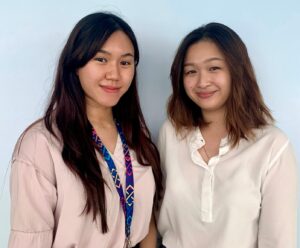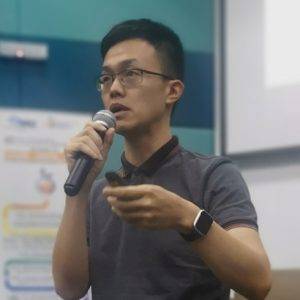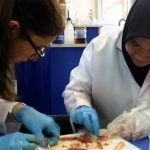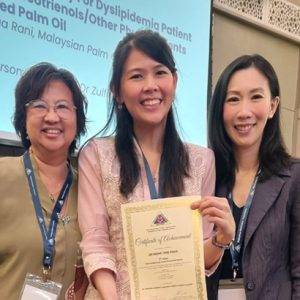Two final year (Year 4) students from the IMU Pharmacy programme, Li-Yen Lee and Geena Hew Suet Yin had successfully conducted their Semester 7 research project at the University of Technology Sydney, Australia, as part of a collaborative student mobility programme. Their research primarily involved working on chronic respiratory diseases and inflammatory conditions of the respiratory tract. As part of their research project, the students had been successful in publishing a review entitled, ‘Targeting eosinophils in respiratory diseases: Biological axis, emerging therapeutics and treatment modalities’. The review was published in one of the recent issues of the journal, ‘Life Sciences’, under volume 267 (https://www.sciencedirect.com/science/article/abs/pii/S0024320520317331). In their paper, they have highlighted that several eosinophil targeting drugs have entered clinical testing, and several of such eosinophil targeting therapeutic agents have shown much promise and have further bridged the gap between theory and practice. Moreover, they have also highlighted that, researchers now have a clearer understanding of the roles and mechanisms of eosinophils and their implications in human health. They conclude that, the above-mentioned factors have successfully assisted molecular biologists to block specific pathways in the growth, migration, and activation of eosinophils. The students were mentored and guided in their preparation of the review manuscript draft by Dr Dinesh Kumar Chellappan from the Department of Life Sciences, IMU. The entire project was supervised by Dr Jithendra Panneerselvam from IMU’s Department of the Pharmaceutical Technology.
Li-Yen shared her experience in the writing and preparation of the manuscript. “It was an absolute pleasure working with the researchers both at the International Medical University (IMU) and at the University of Technology Sydney (UTS). We were guided effectively on the various skills and aspects of writing a piece of scientific literature. We were also taught on how to construct cohesive sentences with coherence. In addition, we had the opportunity to use referencing software like Mendeley, which we had employed to compile the references in order”.
Geena agreed to this and added, that, “the experience has shaped us into better researchers, and we can definitely benefit from it by applying the knowledge gained to our future clinical or research-based work. With this guidance, we have learned to think critically, perform effective literature searches and to be pro-active in our research and laboratory work. Taking part in this collaborative project was truly one of the best and most fruitful experience in our degree years”.
| About IMU Pharmacy Programme |
|---|
| The IMU Pharmacy programme offers diverse and rewarding career options from being part of a clinical engagement team, scientific research, industrial consultancy to serving in a leadership role in all aspects of the healthcare system. Essentially, pharmacists work in hospital, community, industry, and research settings, enjoying versatility in their choice of work preferences and schedule. With the ever-increasing volume of medicines in the market, pharmacists play a crucial role in assisting physicians and patients in their decisions on which medicines will provide the most beneficial outcomes. In addition to academic competence, the IMU Pharmacy programme also provides a competitive advantage for its students with interests in scientific research. Students studying the IMU Pharmacy programme will undergo a complete semester dedicated to build students’ knowledge and skills in research processes in the final year of the programme. Students are primarily trained in various areas of research, from the identification of a problem, defining the research objectives to the presentation of their research findings. Students are also encouraged to be involved in publishing their research findings in well recognised scientific journals. Several students have been able to execute their research in collaboration with international universities from France, United Kingdom, Australia, Japan, and Thailand, as part of the student mobility programme. |










